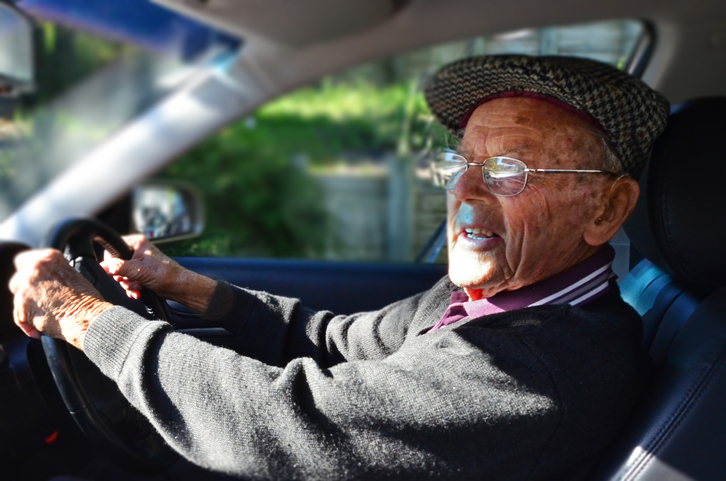People in the over-75 age bracket are more likely to be involved in fatal accidents than any other age group except for teenagers. Also, 28 percent of crashes involving older drivers happen while making a left turn. Why? There are a number of factors that impact our ability to drive safely as we get older.
Factors Affecting Safe Driving
One of the most common changes as we age occurs in our reaction time. We react more slowly, we move more slowly, and we are more likely to be distracted by road signs, lights, billboards, etc. We may also have changes in our eyesight—cataracts, macular degeneration—that have an effect on our ability to drive safely. Finally, physical changes such as stiffness in the neck can make it difficult for us to turn our head sufficiently while backing up or making turns, and stiffness in our legs or leg pain can impact our ability to quickly move our foot from the gas to the brake.
Warning Signs of Unsafe Driving
An increased number of citations or close calls can be a clue that you or your loved one is no longer safe on the road. Memory issues are another red flag that it might be time to give up driving. Also, hearing problems, issues with eyesight or taking medications that cause drowsiness or other side effects that might interfere with concentration and reaction time need to be taken into consideration.
Staying Safe on the Road
One of the best ways to remain safe on the road is to take a safe driving course and brush up on your skills. An age appropriate car with good visibility, power brakes and power steering is a must. Keep your car in good repair and be sure that your windshield and headlights are always clean.
As we age, night vision diminishes, and you may want to consider limiting your driving to daytime if that is the case. Avoid driving in bad weather or on unfamiliar roads. At a certain point, you might want to consider limiting highway driving as well.
Alternatives to Driving
One of the many advantages to living in an independent retirement community is that it’s possible to give up driving without ending up housebound. Enjoyable communal activities, along with the close proximity of friends and neighbors, makes it possible to have a fun, active social life even if you choose to no longer drive. “Even bad weather can’t keep you isolated,” said Michael Loughman, director of sales for Holland Home, a company that has been providing services to seniors since 1892. “Most independent living communities offer a full calendar of outings and events, along with weekly trips to the supermarket and many on-site amenities like beauty salons, banks and health centers.”
Whether or not you choose retirement living as an option, giving up or limiting driving encourages walking which is a great way to get around as well as wonderful exercise that very well might add years to your life. Most towns have some form of public transportation or shuttle service. In Grand Rapids, the Go!Bus provides low cost door-to-door service for seniors over 65. Taxis are another option as is arranging rides with younger family members or friends.
Giving Up the Car Keys
At a certain point, it might be necessary to take the car keys away from a loved one because of safety issues. This is a very delicate situation and requires a great deal of tact. The key is to show respect for your loved one and be mindful of their dignity. Giving up driving is an enormous transition, and they may feel as if they are giving up more than just their car. It is helpful to give them specific examples of times when you felt their driving was no longer up to par—close calls, driving citations, unexplained dents or dings in their car. You may have to enlist family members to help.
It might be reassuring to explore alternative means of transportation with your loved one-securing schedules for public transportation and collecting phone numbers of friends and family who would be willing to drive to appointments or the grocery store.
While giving up the keys to the car isn’t easy, it doesn’t necessarily have to mean the end of independence.

